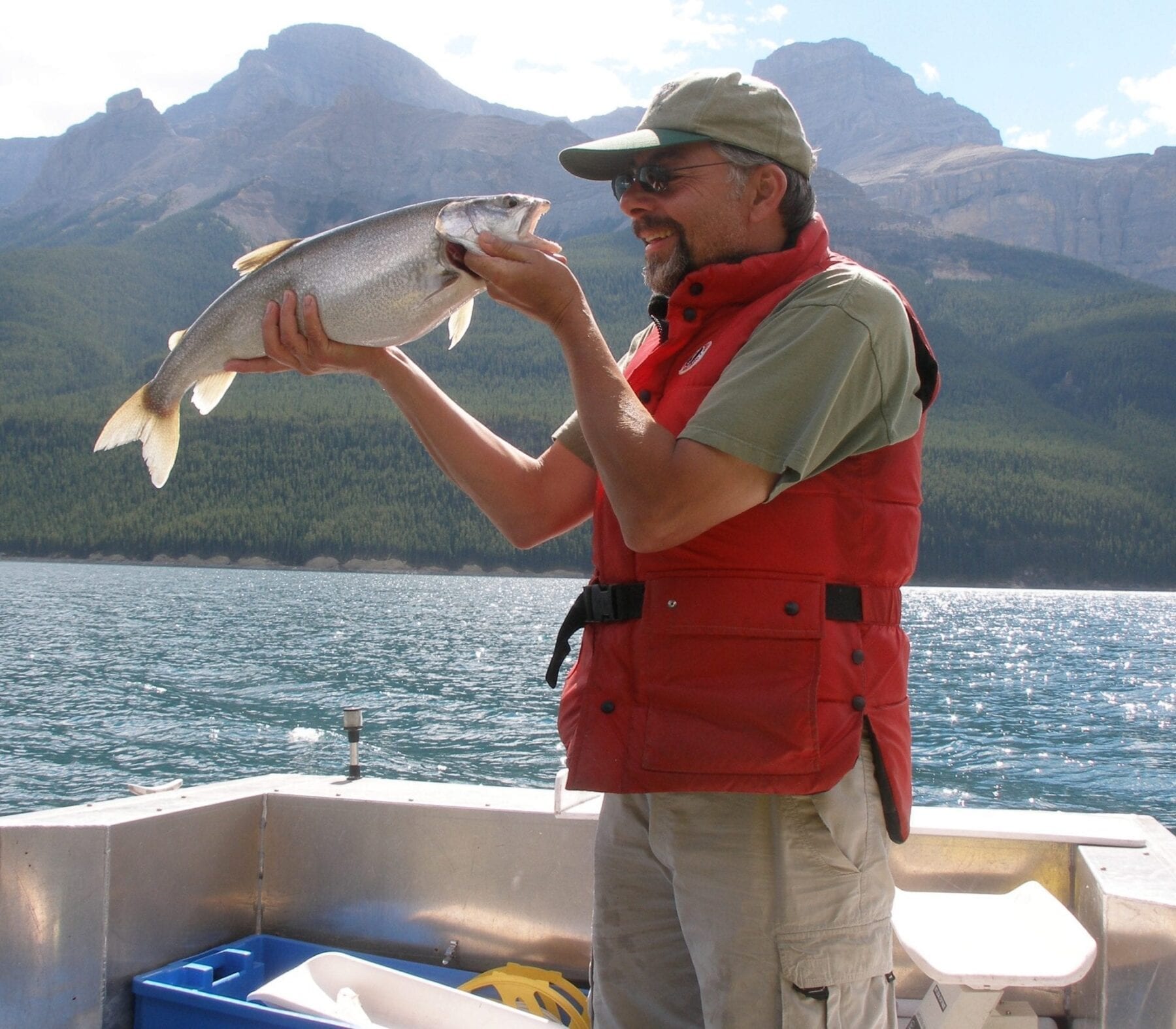
Revisions to Fisheries Act were unscientific, biologists at universities of Calgary and Dalhousie say
Federal government changes to Canada’s fisheries legislation have eviscerated the ability to protect habitat for most of the country’s fish species, scientists at the universities of Calgary and Dalhousie say in a new study.
The changes were politically motivated, unsupported by scientific advice – contrary to government policy – and are inconsistent with ecosystem-based management, fisheries biologists John Post and Jeffrey Hutchings say.
Their comprehensive assessment, in a peer-reviewed paper titled “Gutting Canada’s Fisheries Act: No fishery, no fish habitat protection,” is published in Fisheries, a journal of the 10,000-member American Fisheries Society.
“The biggest change is that habitat protection has been removed for all species other than those that have direct economic or cultural interests, through recreational, commercial and Aboriginal fisheries,” says Post, professor of biological sciences at the University of Calgary.
Habitat protection curtailed
Before, “there used to be a blanket habitat protection for all fish species,” he says. “Now there’s a protection just for species of economic importance which, from an ecological standpoint, makes no sense.”
Studies cited by Post and Hutchings show that not protecting habitat is the “single greatest factor” for the decline and loss of commercial and non-commercial species on land and in water.
Yet the changes to the Fisheries Act removed the “mandated legal protection” of habitat even for fish species that are in decline, Post says.
About three-quarters of approximately 80 freshwater fish species in Canada listed as being at risk, threatened or endangered “are not going to receive the protection that they did in the past,” Post says.
Hutchings is a former chair of the Committee on the Status of Endangered Wildlife in Canada while Post is a current member. Both scientists’ research is supported by the Natural Sciences and Engineering Research Council of Canada.
A streamlined process for development projects
One reason the federal government gave for making the changes last year was to streamline environmental reviews and make the regulatory process more efficient for development projects.
But Post and Hutchings’ paper cites peer-reviewed scientific studies which found that between 2006 and 2011, only one project proposal among thousands was denied by the federal Department of Fisheries and Oceans.
Only 1.6 per cent of 1,238 convictions under the previous Fisheries Act between 2007 and 2011 pertained to the destruction of fish habitat.
Go deeper with Bing News on:
Protecting habitat
- Coastline protection legislation needs prompt attention
The Marine Protected Areas Bill was listed as a priority legislation by the government 20 months ago, but the bill is yet to be published ...
- Is enough being done to protect wetlands at site of proposed Spanaway homeless village?
A group of local residents who oppose the construction of a micro-home village to serve the chronically homeless near Spanaway Lake are making the case that analysis of wetlands on the property was ...
- Here's what you can do to protect Wisconsin's frogs and toads
It's Amphibian Week. So the Wisconsin Department of Natural Resources has provided tips on how you can protect frogs, toads and salamanders.
- Is the Wilderness Act still protecting nature?
The Wilderness Act protects 175,000 square miles of public land. As the natural world is transformed by climate change, has the landmark 1964 law become counterproductive?
- How a Fantastical Labyrinth Became a Crucial Habitat for Europe’s Bats
After scientists documented the flying mammals in the Piusa Sand Caves, dug by miners a century ago, conservationists strove to protect the vital habitat ...
Go deeper with Google Headlines on:
Protecting habitat
[google_news title=”” keyword=”protecting habitat” num_posts=”5″ blurb_length=”0″ show_thumb=”left”]
Go deeper with Bing News on:
Habitat protection
- TWRA ANNOUNCES AVAILABILITY OF 2024-25 CLEAN STREAM GRANTS TO HELP WITH HABITAT PROTECTION PROGRAM
The Tennessee Wildlife Resources Agency announces the availability of grant dollars to assist cities, schools, community organizations, civic groups, watershed organizations, and conservation groups, ...
- Philippine Tycoons Extend $3.3 Billion Energy JV To Marine Habitat Protection
Billionaire Ramon Ang has again teamed up with tycoons Sabin Aboitiz and Manuel Pangilinan to protect the marine habitat near their power plants and LNG terminal.
- Shorebirds' nests need our protection
Some of the most pressing threats to these birds are caused by humans, and so part of our jobs is educating the public on how they can help.
- Protecting endangered monkeys from poachers, habitat loss
The 17 species of red colobus monkey living across Africa, including in the Tai Project field station region, have been singled out by scientists as a priority conservation target. Protection of these ...
- Ducks Unlimited Canada land donation protects critical wetland habitat corridor
Thanks to the generosity of a group of conservation-minded individuals, Ducks Unlimited Canada (DUC) is celebrating the recent acquisition of 297 acres, (120.19 hectares) in the Lake Simcoe watershed.
Go deeper with Google Headlines on:
Habitat protection
[google_news title=”” keyword=”Habitat protection” num_posts=”5″ blurb_length=”0″ show_thumb=”left”]










